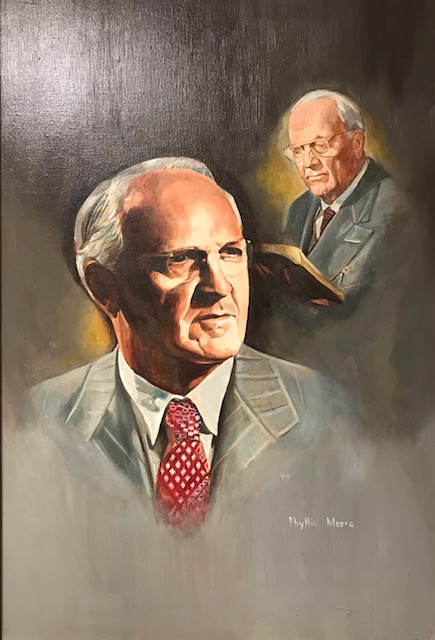
In the annals of American preaching, few sermons have achieved the iconic status of “Payday Someday” by Robert G. Lee. This masterpiece of pulpit oratory was delivered over 1,000 times across the United States and remains a testament to Lee’s unparalleled gift for biblical storytelling and spiritual conviction.
The Man Behind the Message
Robert Greene Lee (1886-1978) was born into poverty in rural South Carolina. The son of a
sharecropper, Lee worked his way through Furman University, often studying by candlelight after long days of physical labor. His humble beginnings forged in him a deep understanding of human struggle and an unwavering faith that would define his ministry.
Lee’s oratorical gifts became evident early in his career, but it was during his 33-year tenure as pastor of Bellevue Baptist Church in Memphis, Tennessee (1927-1960), that he rose to national prominence. He served as president of the Southern Baptist Convention for three consecutive terms (1948-1951) and authored over 50 books. Yet, it was a single sermon that would become his
enduring legacy.
The Birth of a Sermon
“Payday Someday” was first delivered in 1919 at a small church in Edgefield, South Carolina. Lee based the sermon on 1 Kings 21, the biblical account of King Ahab, Queen Jezebel, and their treacherous plot against Naboth to seize his vineyard. The sermon focuses on the prophet Elijah’s declaration that divine justice would eventually catch up with the wicked royal couple.
What began as a straightforward biblical exposition evolved over decades into a masterpiece of homiletical art. Lee refined the sermon with each delivery, adding vivid imagery and dramatic cadence that would hold audiences spellbound for over an hour.
The Sermon’s Structure and Impact
The sermon’s central theme is captured in its title and recurring refrain: “Payday Someday.” Lee powerfully articulates the biblical principle that moral debts will inevitably come due, famously declaring: “God’s mills grind slow, but they grind exceeding fine.”
Lee structured the sermon around five dramatic scenes:
- Ahab’s covetous desire for Naboth’s vineyard
- Jezebel’s wicked scheme to steal it through false accusations
- Naboth’s unjust death by stoning
- Elijah’s prophecy of divine judgment
- The ultimate fulfillment of that prophecy
What made the sermon extraordinary was Lee’s ability to transport listeners to ancient Israel through his vivid descriptions. He painted scenes with such detail that congregants often felt they were witnessing the events unfold. His description of Jezebel’s death—being thrown from a palace window and eaten by dogs—became particularly famous for its dramatic intensity.
The Legacy of “Payday Someday”
By the time of Lee’s death in 1978, he had delivered “Payday Someday” over 1,275 times in churches across America. The sermon’s appeal transcended denominational lines, and it was not uncommon for people to travel hundreds of miles to hear Lee preach it.
What explains the sermon’s enduring appeal? Beyond Lee’s rhetorical brilliance, “Payday Someday” addressed universal themes of justice, accountability, and moral consequence. It spoke to a fundamental human desire to see the scales of justice balanced, even if that balance comes in divine timing rather than human timing.
The sermon also represented a kind of preaching that has become increasingly rare—combining theological depth with theatrical delivery. Lee’s ability to hold audiences captive for over an hour with nothing but the spoken word stands in stark contrast to modern communication styles.
The Sermon’s Continuing Relevance
Though Lee delivered his last “Payday Someday” decades ago, recordings and transcripts continue to circulate among preachers and theological students. Beyond its historical significance, the sermon remains relevant for its unapologetic moral clarity in an age often characterized by ethical ambiguity.
Lee’s masterpiece reminds us that powerful communication need not rely on technological bells and whistles—sometimes a single voice, powered by conviction and crafted with care, can leave an imprint that lasts generations.
In a world where immediate gratification is often expected, “Payday Someday” stands as a powerful reminder that some debts—both moral and spiritual—operate on a different timeline, but they will, inevitably, come due.Retry